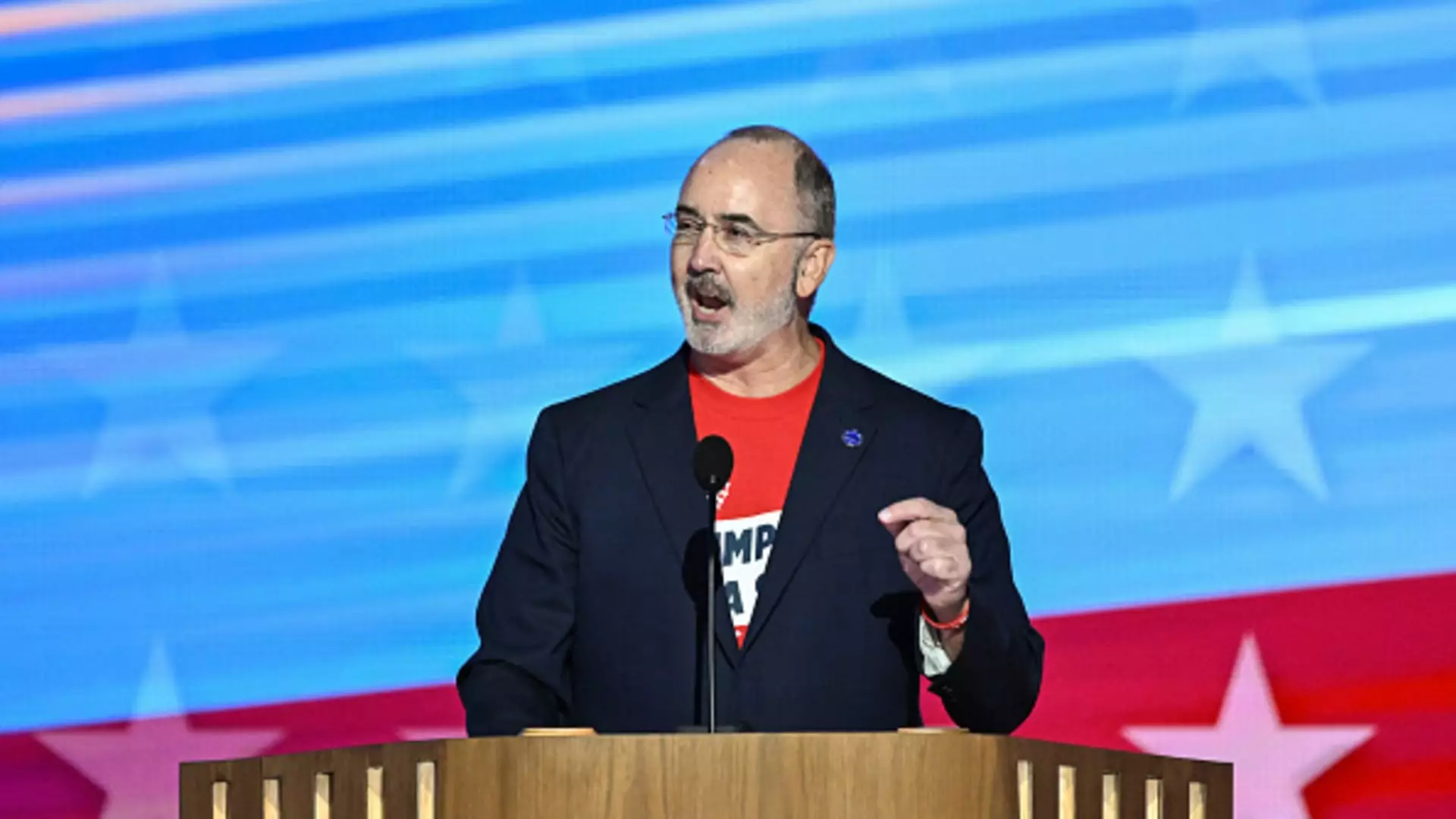In a strikingly unexpected turn of events, Shawn Fain, the head of the United Auto Workers (UAW), has become an advocate for policies that align closely with President Donald Trump’s controversial tariff plans. It’s a move that has raised eyebrows, especially considering Fain’s previously outspoken criticism of Trump during his presidential campaign. This shift exemplifies the turbulent intersection of labor rights, economic policy, and partisan politics, forcing many to reconsider the impact of tariffs on American labor.
The Irony of Support
It’s hard to ignore the irony inherent in Fain’s approval of tariffs that Trump has championed. For decades, labor unions have been a vocal opponent of policies perceived to jeopardize American jobs. Yet, Fain argues that these tariffs are a necessary intervention designed to “stop the bleeding” of job losses that he attributes to free trade agreements like NAFTA, implemented in 1992. This is where the narrative becomes convoluted. While tariffs aim to provide a safety net for the struggling American workforce, they may inadvertently inflate consumer prices, complicating the very economic landscape they aim to stabilize.
Fain’s perspective highlights a desperation borne from a crumbling auto industry, which has suffered immensely as companies shifted operations overseas in a bid for lower labor costs. In his comments, Fain encapsulates a duality prevalent in American labor discourse: the urgent need for protectionism to safeguard American jobs against the might of global trade, while also acknowledging the potential pitfalls of such an approach.
Uncertain Future
Fain’s endorsement comes at a time when the UAW is still grappling with its own internal issues, notably under federal monitorship due to a corruption scandal that has gripped the leadership. This backdrop casts a long shadow over Fain’s credibility and raises the question of whether his current alignments are politically motivated or genuinely rooted in concern for American workers. How should we weigh his support of the tariffs against the backdrop of the union’s tainted reputation?
Moreover, the looming April 2 deadline, which pauses tariff implementations for auto companies adhering to the USMCA, adds an element of uncertainty. Will auto manufacturers respond to these protective measures with the altruism Fain hopes for, or will they react by passing on costs to consumers in the spirit of maximizing profits? With corporate America historically prioritizing shareholder returns, the risk of economic disruption looms large.
Corporate America: The Real Villain?
Fain’s assertion that corporate America will bear the blame should they choose to exploit tariff-induced price increases raises an interesting debate about accountability. In the eyes of many labor advocates, it has long been a game of ‘profits first, workers second.’ If corporations choose to “price-gouge” to maintain margins, it presents a direct challenge to Fain’s theory of tariffs working equitably for consumers and workers alike.
The discord within automotive companies is palpable; while Fain sings the praises of tariffs as a necessary evil, key industry leaders like Ford CEO Jim Farley express skepticism. Farley critiques these policies as chaotic and costly, a sentiment reflecting deep-seated concerns about whether Trump’s proclamations can ultimately yield tangible benefits for American manufacturing or remain a series of poorly executed ideas.
A Pivot in Narrative
Fain has nuancedly transformed his rhetoric as the political environment has changed. His pivot from vehement opposition to tentative support reveals a pragmatism that some might view as a necessary compromise in order to ensure that the needs of American workers are met. By emphasizing collaboration with Trump’s team, Fain seems to suggest a willingness to put aside ideological differences for the sake of economic revitalization.
Yet this compromise isn’t free of consequences. Supporting a president who once declared war on unions is a fraught position, potentially alienating portions of the workforce that feel betrayed. It begs the question: At what point does labor’s quest for survival come at the cost of its principles?
Indeed, Fain’s acceptance of Trump’s tariffs is emblematic of a larger movement within labor circles, juggling the immediate needs of preserving jobs against the ideological background of their longstanding adversaries. As they push forward, American labor must confront the unsettling reality that their options may become limited if the political winds continue to shift unexpectedly.
In this epoch of economic volatility, the role of labor unions may need radical rethinking, not merely as advocates of traditional labor rights but also as negotiators in an increasingly complex global economy. With each strategic endorsement or condemnation, the stakes have never been higher for workers, unions, and the very structure of American manufacturing.


Leave a Reply